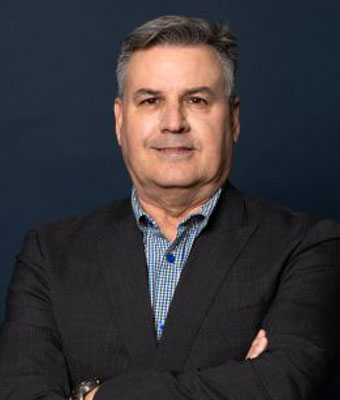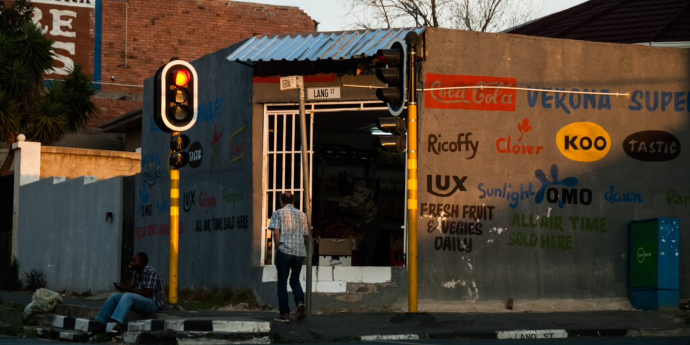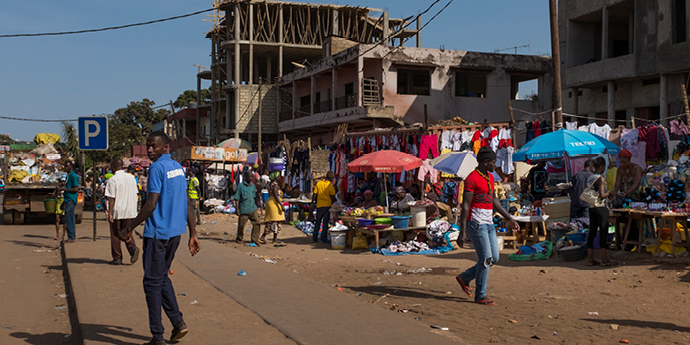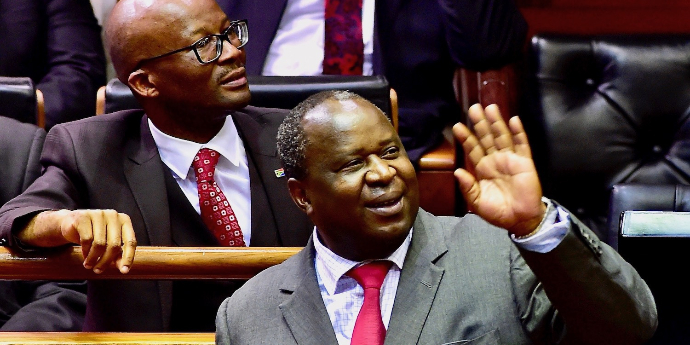MASTER OF COMMERCE IN DEVELOPMENT FINANCE
Shape the future of Development Finance
Crafted for future leaders aiming to mobilize and align financial resources for sustainable development in emerging markets.
Discover. Mobilise. Transform.
Immerse yourself in cutting-edge strategies, innovative financial instruments, and impactful investment approaches that drive societal and economic change.
Transform financial futures
This Development Finance Master's programme is designed for professionals looking to advance their careers in finance, development institutions, and policy-making. Our students come from diverse backgrounds, united by a commitment to drive sustainable development in their communities and beyond.
What to expect with this unique programme:
- Coordinate the roles of multiple stakeholders to bridge the financing gap for sustainable development in emerging economies.
- Design innovative financial instruments.
- Understand the approaches to incorporating responsible investment strategies in the allocation of funds for impact and sustainability.
- Combine traditional lecture sessions with case studies.
- Interact with professional experts from development finance institutions, as well as public and private sector actors throughout Africa.
* Application & Course fees are provisional for 2026, and are subject to annual UCT council approval. If you would like more information on fees for this programme, click here.
Aligning Finance for Development
Lead Meaningful Change
Our Development Finance Master's Programme is rigorous, engaging, and designed to develop leaders who can navigate and address the complexities of development finance. Gain insights from our faculty and alumni about the transformative impact of our programme.
Take a look at how this programme is empowering the leaders of tomorrow to create sustainable financial solutions for the development of emerging economies.
Programme Information
Curriculum Overview
The programme is broken down into four main blocks spread over a two year cycle. It comprises nine courses, an elective and a research report.
Module 1
March, Year 1
The first block focuses on contact sessions for these 4 core courses:
- Quantitative Methods in Development Finance
- Issues in Development Finance
- Micro-enterprise Finance
- Research Methods
There are 4 assignment submissions for these courses in the inter-modular period
Module 2
August, Year 1
The second module includes examinations for the core courses from Module 1.
In addition, this module focuses on contact sessions for these 4 core courses:
- Public Sector Finance
- Project Finance
- International Finance for Development
- Responsible Investment
There will be 4 assignment submissions in the inter-modular period.
In addition, students are required to write a research report (60 credits), with the guidance of a supervisor, which covers a topic real interest. In this module you will begin work on on this project.
Module 3
February, Year 2
The third module includes examinations for the 4 core courses covered in Module 2.
In addition, it focuses on contact sessions for:
- Innovative Finance
- One selected elective (view elective options)
There will be 2 assignment submissions in the inter-modular period.
In addition, students are will continue working on their research report.
Module 4
February - December, Year 2
The fourth module is a non-contact period from the end of Module 3 until December of Year 2.
During this period, students will focus all of their attention on the completion and submission of their Research Report.
Entrance Requirements:
- A minimum NQF level 8 (postgraduate degree) qualification in a finance-related field,
- or an NQF 8 in non-finance field with at least three years’ of finance-related work experience.
- They must also be fluent in spoken and written English.
Who should apply:
Our students come from diverse backgrounds, united by a commitment to drive sustainable development in their communities and beyond
Applicants to this programme are typically:
- development finance practitioners
- civil servants
- staff of development finance institutions
- staff of other financial institutions
- entrepreneurs
- staff of NGOs
- employed in the private sector
Timing & Costs

Formats & Dates
This is a modular programme, broken down into 4 main blocks spread over a two year cycle. Students attend classes at the UCT GSB Breakwater campus in Cape Town twice a year of between 2–-3 weeks each during February/March and in August.

Funding
We understand that funding your studies can be a challenge. While we do not offer scholarships for this programme, here are some ideas that could help.
What our students say
Why choose this programme?
Meaningful impact
Learn how to create strategies that place Africa on the global stage and drive sustainable development.
Emerging markets expertise
With over five decades of academic excellence and a deep understanding of emerging markets, the UCT GSB provides a unique opportunity to lead the way in development finance.
Professional credibility
Build the credibility needed to advance within your chosen organization and influence policy and investment decisions.
Innovation in finance
Equip yourself with the knowledge to navigate and contribute to the rapidly evolving financial landscape through cutting-edge tools, insights, and real-world application.
FREQUENTLY ASKED QUESTIONS
Find answers to common questions about the MCom Devfin programme.
As a professional discipline, Development Finance is widely practised today across a broad range of organisations and contexts. However, there is a shortage of development finance experts in Africa, where this kind of knowledge is needed most.
Development finance skills can be useful in providing optimum financial outcomes that enhance the design and implementation of reforms and capacity-building programmes adopted by development finance institutions, governments, the private sector and NGOs.
You don’t need to be working in a development finance institution to benefit from this degree. These skills are also widely used by people in other contexts, including banking and financial services.
Applicants to this programme are typically:
- development finance practitioners
- civil servants
- staff of development finance institutions
- staff of other financial institutions
- entrepreneurs
- staff of NGOs
- employed in the private sector
Yes! Our MCom in Development Finance, presented through DEFIC, is a partnership programme between the GSB and the Africagrowth Institute (AGI), an independent organisation providing research and consulting on growth opportunities in Africa.
The GSB is one of a small number of universities world-wide offering this degree accredited by the Chartered Institute of Development Finance (CIDEF). CIDEF is a global professional membership and certification body for development finance specialists.
DEFIC is an active member of the CIDEF global development finance network with members from major institutions including the African Development Bank, Development Bank of South Africa, Afreximbank, AERC, Industrial Development Corporation, SADC-DFRC, KPMG and the South African National Treasury, to name just a few.
Click here for more information on DEFIC.
Yes! The MCom in Development Finance intake often includes up to 60% international students. This provides graduates with a professional network of practitioners in Africa and beyond.
Upon completion of the degree you will become a member of the Chartered Institute of Development Finance.
In addition, you when you graduate you will join the wider GSB alumni network – a dynamic forum that comprises more than 23 000 past GSB students in 68 countries worldwide. Many of the GSB’s alumni hold key positions in top companies or have started their own successful businesses. Alumni play a vital role in supporting and encouraging more recent graduates to follow in their footsteps and GSB students who find employment after graduation – particularly internationally – frequently do so through alumni contacts
The UCT GSB's Breakwater Campus is situated in the heart of Cape Town's most popular tourist attraction, the Victoria and Alfred Waterfront. Centrally located and easily accessed, the UCT GSB is just 1.5km away from the central business district and 20 minutes from Cape Town International Airport.
As an added benefit to studying at the UCT GSB, you'll be situated in one of the most beautiful cities in the world.
The programme is classified at NQF Level 9.
This level indicates a high degree of specialization and expertise, often associated with postgraduate qualifications such as master's degrees
Learn with the best
Get to know the faculty and staff who will guide you through the MCom Devfin programme.

Programme Director

Programme Coordinator (Coursework)



Head: Recruitment and Admissions
Lead the change
Create sustainable financial solutions for the development of emerging economies.
The UCT Graduate School of Business's MCom in Development Finance is a comprehensive programme designed to equip you with the expertise to bridge the financing gap for sustainable development. Through a blend of lectures, case studies, and expert interactions, you'll develop the skills to design innovative financial solutions and drive responsible investment strategies across Africa.
IDEAS EXCHANGE
News and thought leadership from Africa’s top business school

Development finance: how it works, where it goes, why it’s needed
Development finance addresses the failures or limitations of financial institutions such as commercial and investment banks. It is the invisible glue that connects public and private financing for projects that have social, economic and environmental outcomes.
Read Article
Export finance and development finance: How Acre Impact Capital is providing a nexus for convergence
Bringing development finance actors together is key to unlocking sustainable infrastructure growth where it is most vital.
Read Article
Trump’s USAID Freeze: A Wake-Up Call for South Africa’s Aid Sector
Kay Lala-Sides, an MPhil Inclusive Innovation graduate and PhD candidate at the UCT Graduate School of Business, examines the impact of Donald Trump’s suspension of USAID funding to South Africa and what it means for local organisations. With donor scrutiny increasing, she highlights the urgent need for stronger governance, strategic fund management, and accountable leadership to ensure aid effectiveness. Can South Africa’s social sector rise to the challenge?
Read Article
How the rules that govern our economies can change
Impact investing offers a promising solution to address the world’s social, environmental, and economic challenges. By merging financial returns with measurable positive impacts, it’s reshaping how we think about investment. However, achieving the balance between profitability and true societal impact isn't always easy. This article delves into the complexities of impact investing and how we can rethink the rules to build more sustainable economies.
Read Article
Breaking Barriers to Sustainable Finance
From navigating infrastructure challenges to meaningful finance, Bruce Jelley shares his experiences and insights about the MCom in Development Finance at the UCT Graduate School of Business, and how it is reshaping the way South African developers approach sustainability.
Read Article
The Development Activist
From humble beginnings to pioneering public leadership – Pati Kgomo's journey in development finance started with various positions in local government, progressed to position with the Development Bank of Southern Africa, and was honed by a Master’s in Commerce specialising in Development Finance at the UCT Graduate School of Business. Her remarkable achievements are a testament to the power of altruism, education, and a passion for sustainable development.
Read Article
Professor Nicholas Biekpe inducted into prestigious UCT College of Fellows
Induction into the UCT College of Fellows is one of the highest accolades an academic staff member can receive. The fellowship is a reward to academic staff members for their years of commitment and dedication to their work.
Read Article
UCT team wins Oxford Map the System competition
Following their win at the regional final hosted by the University of Cape Town Graduate School of Business (UCT GSB), Finclusive was awarded first place for their project at the University of Oxford’s (UO) Map the System (MTS) competition, which took place from 17 to 20 June.
Read Article
All eyes on DFIs as Africa looks to economic recovery
DFIs can be the catalysts for a stronger and more inclusive continent, but they need to expand their remit to include a focus on SMEs as a key priority.
Read Article
UCT GSB graduate is banking on his country’s future
MCom alumnus, Mutemwa Ushewokunze, has returned to Zimbabwe after 20 years abroad, to help take the country’s banking sector to the next tech level.
Read Article
The role of development finance in rebuilding South Africa’s economy post-COVID-19
The global COVID-19 pandemic has set back developing countries especially, but it also offers an opportunity to rethink their development path.
Read Article
Coronavirus - an excuse to downgrade African countries deep into junk
A number of rating agencies have downgraded emerging market economies during the COVID-19 pandemic. Their actions have raised the question: why do so during a crisis?
Read Article
Three winning ways to tackle youth unemployment through development finance
Development finance is an underutilised tool that can be directed towards tackling South Africa’s unacceptably high youth unemployment beyond the remit of mainstream finance.
Read Article
Development Finance Institutions (DFIs) can lead SA’s economic recovery
While government has identified DFIs as a key partner in delivering an economic turnaround — these institutions lack capacity and resources to do their jobs effectively. Fixing this will be a necessity.
Read Article
